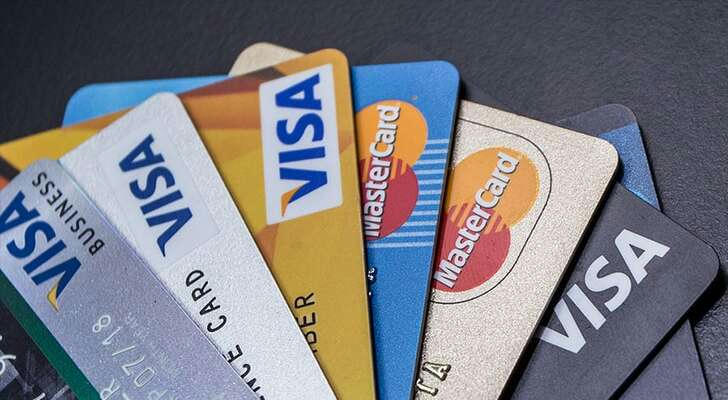5 Common Reasons Credit Card Applications Get Rejected & How to Fix Them

Getting your credit card application rejected can be frustrating. After all, you've done the research, chosen the right card, and filled out the form—but then you hear the dreaded "application denied." Understanding why this happens and how to fix it can help you turn things around. Below are the 5 most common reasons credit card applications get rejected and practical tips on how to address each one.
1. Low Credit Score
One of the most common reasons for a credit card rejection is a low credit score. Banks and credit card companies typically require a minimum credit score to approve applications. If your score falls below this threshold, it could be a dealbreaker. The FICO credit score, which ranges from 300 to 850, is commonly used to determine your eligibility.
Why Does a Low Credit Score Matter?
Credit card companies see a low score as a sign of potential risk. It suggests that you may have a history of late payments, high debt levels, or missed credit obligations. A lower score makes them hesitant to trust you with a new line of credit.
How to Fix It:
• Check your credit report: Make sure there are no errors or outdated information. Correcting inaccuracies can raise your score.
• Pay bills on time: Late payments can significantly lower your score. Set up reminders or automate payments.
• Reduce your credit card balances: A high credit utilization rate (the amount of credit you're using compared to your total available credit) can negatively impact your score. Aim for a utilization rate below 30%.
It takes time to build your credit score, but small consistent efforts can make a big difference. According to a study by Experian, people who paid down 20% of their credit card balances saw an average credit score increase of 40 points.
2. High Debt-to-Income Ratio
Your debt-to-income (DTI) ratio is another factor that influences credit card approval. It’s the percentage of your monthly income that goes toward paying off debt. A high DTI suggests that you may be overburdened with debt and might struggle to pay off new credit card balances.
Why DTI Matters:
Credit card companies look at your DTI ratio to gauge your ability to handle more debt. The higher your DTI, the more likely you are to struggle with paying off your bills, which poses a risk to lenders.
How to Fix It:
• Pay off existing debt: Start by focusing on paying down loans or credit cards that are carrying large balances.
• Increase your income: Consider side gigs or freelance work to boost your income. A higher income reduces your DTI ratio.
• Consolidate debt: If you're juggling multiple debts, consolidating them into one payment can help manage your DTI more effectively.
Ideally, your DTI should be under 36%. According to Experian, a DTI ratio above 43% can significantly hinder your chances of being approved for a credit card.
3. Too Many Recent Credit Applications
Have you been applying for several credit cards in a short period? If so, this can hurt your credit score and increase your chances of rejection. Each time you apply for credit, a hard inquiry is placed on your credit report. Too many inquiries can signal to lenders that you may be desperate for credit.
Why Too Many Applications Are Problematic:
Frequent credit applications indicate a higher level of financial instability or risk. Lenders view this behavior as a red flag and might be hesitant to approve your application.
How to Fix It:
• Space out applications: Avoid applying for multiple credit cards within a short period. Consider waiting at least six months before applying for a new card.
• Check pre-qualification options: Many credit card companies offer pre-qualification checks that don't affect your credit score. This gives you an idea of your approval odds without the risk of a hard inquiry.
Studies by NerdWallet show that multiple hard inquiries in a short time can lower your credit score by as much as 5-10 points, which could impact your chances of approval.

4. Unstable or Insufficient Income
Credit card issuers need to ensure that you have the financial means to repay the debt you incur. If your income is deemed insufficient or unstable, your application might be rejected. Lenders typically ask for proof of income to assess whether you can afford to repay monthly balances.
Why Insufficient Income Matters:
If your income is low or inconsistent, lenders may worry that you won't be able to keep up with the payments. This is particularly true for cards that offer higher credit limits or rewards programs.
How to Fix It:
• Increase your income: If possible, increase your earning potential by negotiating a raise, finding a higher-paying job, or taking on side work.
• Provide accurate documentation: If you have multiple sources of income, include all of them in your application. For example, side gigs, rental income, or alimony can be considered when assessing your financial stability.
According to CNBC, credit card companies typically want to see an income that’s stable and sufficient to cover all your debt obligations, including your new card.
5. Applying for the Wrong Type of Card
Not every credit card is right for everyone. Some cards require applicants to have excellent credit, while others are tailored for those with fair or poor credit. If you apply for a card that’s too advanced for your financial situation, your application might be declined.
Why the Right Card Matters:
If your credit score doesn’t meet the minimum requirements for a high-end card, you won’t be approved. Similarly, applying for a card with rewards or travel benefits when you don’t have a steady income might be risky for you and a red flag for the issuer.
How to Fix It:
• Know your credit score: Before applying, check your credit score to match it with the type of card you're eligible for.
• Consider a secured credit card: If you're just starting out or trying to rebuild your credit, a secured card (one where you deposit money as collateral) can help improve your credit profile over time.
A report from Bankrate shows that 65% of Americans apply for credit cards without fully understanding their credit profile or the card’s eligibility requirements, which leads to unnecessary rejections.
Conclusion
Credit card rejections are a part of the financial journey, but they don't have to be permanent setbacks. By understanding the reasons behind rejections—whether it’s a low credit score, high debt-to-income ratio, or applying for the wrong card—you can take steps to improve your financial profile and increase your chances of approval. With patience and effort, getting approved for a credit card is entirely possible.
